Catalina Perez-Montejano '25, Global Health
Dominic Pak '24, Environmental Science and Health B.S. and Global Medicine M.S.
Fabiola Sosa '24, Health Biology
Marilyn Perez '25, Global Health
Nisha Lerdsuwanrut '25, Health Promotion & Disease Prevention
Peyton Hall '25, Biology
Tomás Delgado Manea '25, Quantitative Biology
Mehaly Bekele '24, Health Promotion & Disease Prevention/MPH
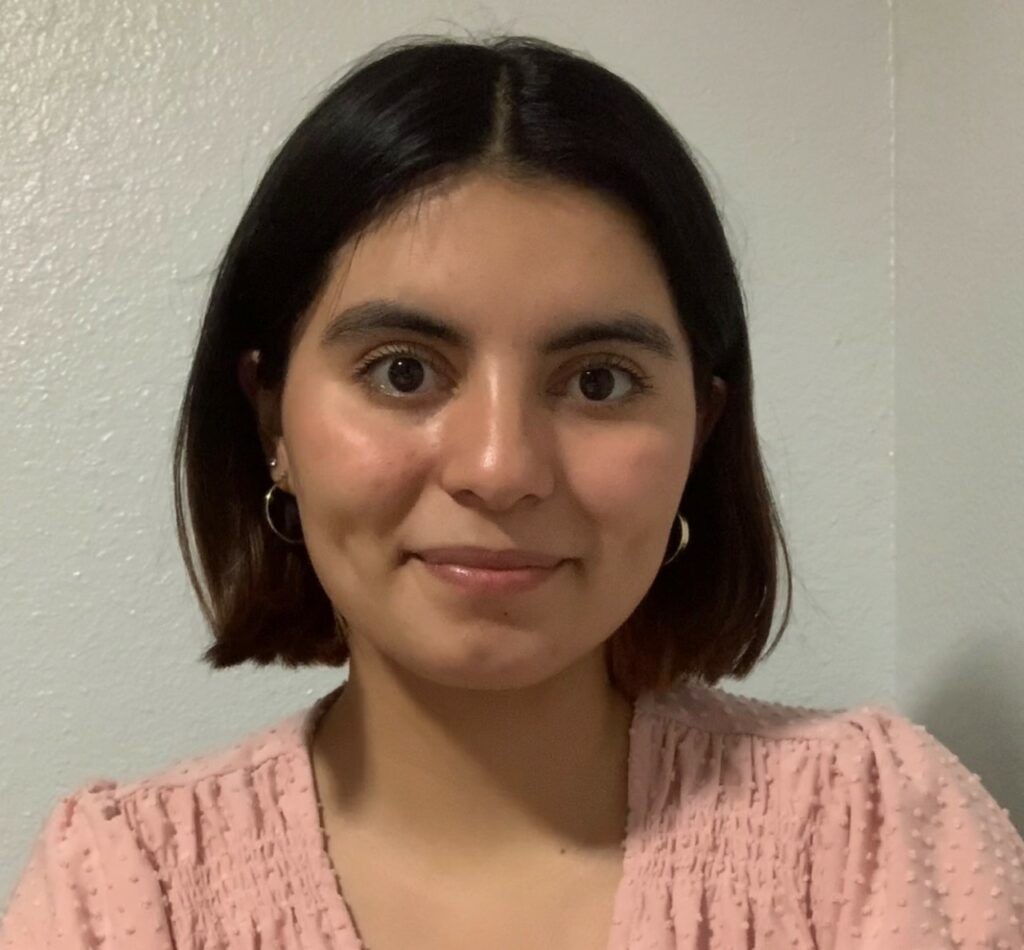
How do you hope to make a difference in environmental health? Environmental health can be an obscure topic for many, especially for communities lacking educational resources. Thus, I want to provide people with the knowledge and tools that will give people the best opportunity to make informed choices regarding their health.
What led you to pursue the EH MATTERS internship?
EH MATTERS is the first internship that I genuinely wanted to apply for. This internship will not only help me learn more about the field I want to go into research, but it will also provide a safe space where I can thrive as an individual while having the reassurance that the people surrounding me have my best interest in mind.
How do you see this program helping to drive your future?
Understanding the root causes of health disparities through research done during this internship will ensure that I have the skills to create the best outcomes for future post-graduate schooling, which I want to pursue, starting with a USC advanced degree in Public Health.
How do you want to make a difference in public health/environmental health outside of the classroom?
As a first-generation Mexican-American college student, I will be able to create a breakthrough in not only being the first one I’m my family to be involved with the research but also in creating a diverse research environment within environmental health. There is a need for diversity in environmental health, and I believe that the experiences I gained in my community could provide my community an opportunity to be represented. Ultimately, the commitment I have to my small farm town community is why I want to further my education and create a space for students like me to achieve higher goals within the education system.
What message would you like to share with other students wanting to pursue an internship in environmental health?
Do not let your fear of rejection stop you from applying to internships in environmental health. Applying to internships is one of the most intimidating aspects of college, especially if you lack experience. However, you should pursue the opportunities available to you.
What diverse perspective do you bring to EH science, why is it important to have diverse voices and experiences in EH?
With first-hand experience, I understand the hardships and needs of low income communities, primarily composed of minorities and groups oppressed by a system that does not allow for equity. As a first-generation college student and daughter of Mexican immigrants, I have the empathy and knowledge to connect with a diverse group of people, whether it is by using my Spanish-speaking skills or my personal experience as a minority in a small town community.
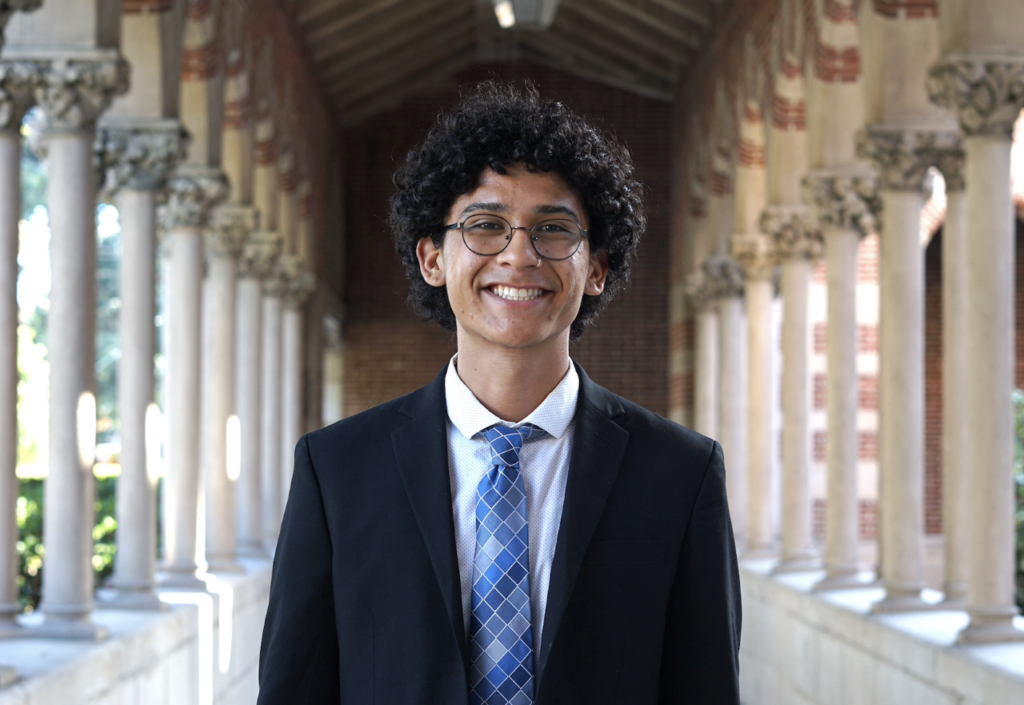
How do you hope to make a difference in environmental health? Within the field of environmental health, I hope to not only expand our current knowledge base of the effects of the environment on health but to develop flexible and long-lasting research methods and solutions. By developing these methodologies and solutions, we are one step closer to addressing the diverse and impending environmental risks that global health faces. More specifically, I have a desire to do this work within underrepresented and underserved communities within the greater Los Angeles area. As a Los Angeles native, this is an opportunity to offset positive change for my own community.
What led you to pursue the EH MATTERS internship?
While trying to find my interests within the health professions, I have always considered the field of public health. With a distinct interest in environmental science, the opportunity to gain research experience within environmental public health seemed to be the ideal intersection of my interests. Additionally, I am interested in pursuing my own research question and developing my own study as it is a unique and exciting opportunity not many undergraduates are afforded. I am excited not only to pursue my own research and learn more about the field of environmental public health, but to do so under the guidance of my mentor! The EH Matters internship is comprehensive, dynamic, and unique in providing exposure and experience across the various professional interests that I maintain.
How do you see this program helping to drive your future?
As an aspiring physician, researcher, and environmentalist my overarching goal with anything I do is to address social injustices and disparities in underserved communities. This internship provides a guided learning opportunity to gain practical knowledge and applicable experience in addressing larger environmental issues and how to offset positive change within the field of environmental health. Tackling global issues and working to advocate for minority groups feels ominous as an undergraduate student. This internship offers the community, mentorship, and education that would provide me foundational knowledge and understanding in how I might best work to serve disadvantaged communities.
How do you want to make a difference in public health/environmental health outside of the classroom?
Despite a heavy background in the natural sciences, I believe that a working knowledge and passion for the political and social aspects of environmental health are compelling and necessary. Outside of the classroom, I aim to learn effective methods to communicate my research to individuals in which such information is often inaccessible. In addition to community engagement, I aspire to learn more about aspects of environmental policy and legislation, and to strengthen the relationship between my research and the politics to which it relates.
What message would you like to share with other students wanting to pursue an internship in environmental health?
Don’t be afraid to ask questions, put yourself out there, or apply for internship/research opportunities. The field of environmental health is broad, diverse, and constantly changing, therefore I believe there is a role for anyone that wishes to join the effort. Because the field is so broad it can be scary not knowing exactly what one has an interest in pursuing. However, I think sustained interest and genuine passion for the subject is all one needs to find their niche. Internships such as EH Matters serve as an opportunity to learn more about the field and one’s passions! Essentially, submit that application and ask all the questions that you have!
What diverse perspective do you bring to EH science, why is it important to have diverse voices and experiences in EH?
I have a variety of interests including environmental science and policy, the practice of medicine, and most importantly, my desire to help and learn about underserved communities. My biggest interest is within people themselves. I am interested and eager to learn about the experiences of members of the underrepresented Latinx and LGBTQIA+ groups. I believe that my upbringing as a Mexican-Korean American has given me a firsthand perspective into the large Latinx community that experiences environmental health disparities within Los Angeles. With experience spending a part of my life in East LA, I understand the struggles that the Latinx community continues to undergo without consistent access to clean resources, problems with homelessness, and ultimately vulnerable exposure to environmental health risk factors. Diversity within EH is necessary as our climate crisis affects anyone and everyone on our planet. As these issues span the entirety of the human race, it is essential that we include and maintain a diversity in the development of solutions. With a variety of culture and origin, the effects of climate change are bound to have varying effects on a number of different communities. By listening to individuals from each of these communities, cultures, and locations environmental health solutions become not only more effective, but equitable.
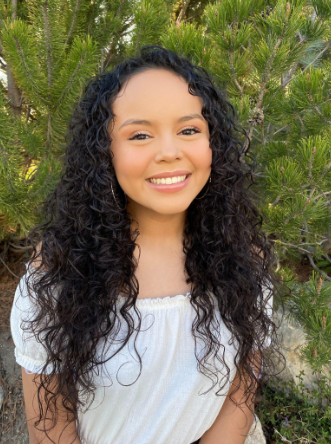
How do you hope to make a difference in environmental health? This program will exemplify ways in which I can be proactive, rather than reactive, by exposing me to different ideas, values and questions that will lead me to think critically about health disparities across affected groups. I hope that through my passion for this field of research, and skills and knowledge acquired through EH MATTERS that I can make a meaningful contribution to the communities who are deserving of environmental justice.
What led you to pursue the EH MATTERS internship?
What stood out to me about EH MATTERS was that it created a space for underrepresented students to accumulate the skills, knowledge and resources to become catalysts of change. EH MATTERS understands the impact of having diverse voices go out into underserved communities to empower them to make an impact on their own health. I am not just excited about EH MATTER’s mission, but how I can contribute to it; by amplifying my voice and advocating for the community I come from, and for those facing similar adversities.
How do you see this program helping to drive your future?
My journey in becoming a healthcare provider works towards expanding my understanding and knowledge that views patients as a mosaic of different factors rather than a list of symptoms. In the context of patient care, knowing the ways in which health outcomes are influenced by environmental health will guide my process in diagnosing and treating patients given their ways of life. Health care and patient outcomes can be improved and maximized when providers develop understanding, compassion and patience, values of which can be strengthened through EH MATTERS
How do you want to make a difference in public health/environmental health outside of the classroom?
I want to make a difference in public and environmental health outside of the classroom by becoming an advocate that is trusted and reliable to the Latinx community. I hope that in becoming a voice to my community, I can foster drive and determination amongst younger and older generations in combating the environmental injustices our people are subjected to.
What message would you like to share with other students wanting to pursue an internship in environmental health?
I encourage people who are passionate and hopeful in making a difference in the communities that are greatly impacted by environmental health disparities. The impact of climate change makes the field of environmental health research ever changing, requiring more hands to find solutions to combat the detrimental effects we are witnessing.
What diverse perspective do you bring to EH science, why is it important to have diverse voices and experiences in EH?
Environmental health research requires a multitude of perspectives working towards progress and change that is impactful across different communities. For years the impact has been lackluster as it has been conducted by those who simply observe health disparities. Having lived and witnessed the struggles the Latinx community faces, I have a level of understanding of the ways in which my community’s health outcomes can be improved. Creating trust amongst members is crucial for increasing efficiency and receptivity in the ways in which they can be empowered to combat disparities they face. With more diverse students becoming involved in this field of research, I see hope in bringing communities of color the environmental health justice they deserve.
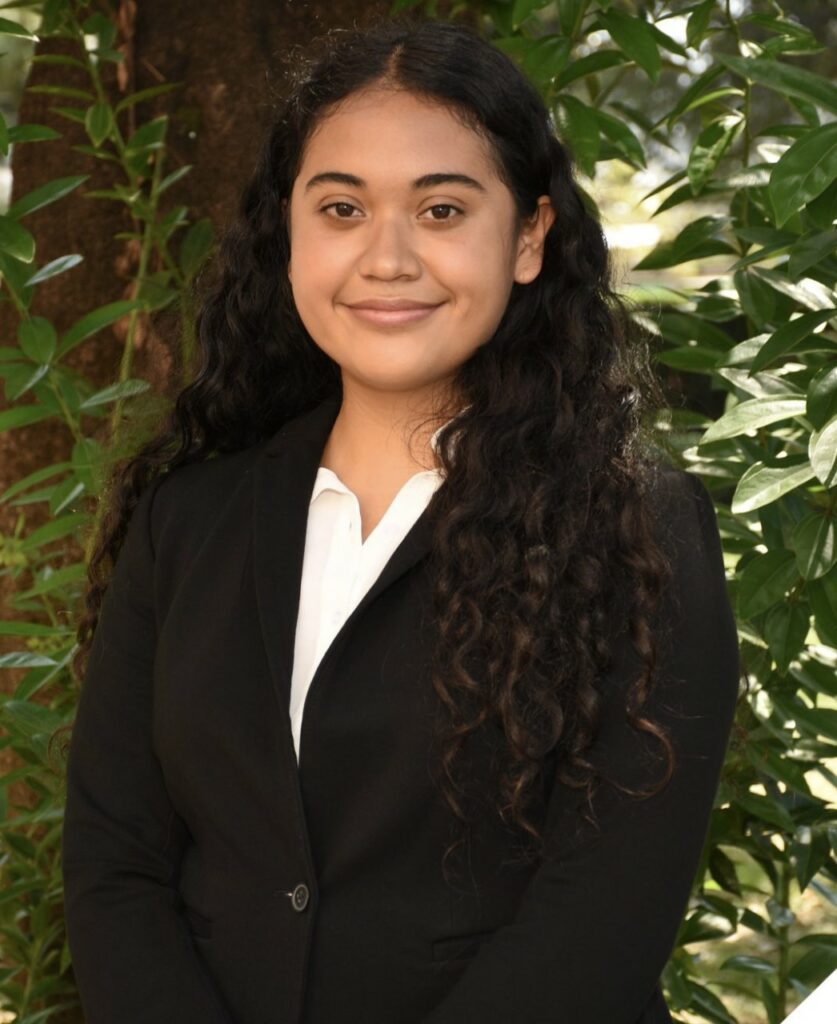
How do you hope to make a difference in environmental health? I hope to reduce environmental health disparities that inadequately affect people of color and those from lower socioeconomic backgrounds, especially air pollution. Through research, I hope to find solutions that could reduce the amount of air pollution that these communities face.
What led you to pursue the EH MATTERS internship?
I decided to pursue the EH MATTERS internship because of how tailored the environmental health research could be to fit my interests, all while being able to receive mentorship during this time.
How do you see this program helping to drive your future?
In the future, I hope to pursue a Masters in Public Health and after enroll in an MD program. Asa medical doctor, I hope to address health disparities present within communities and be able to address them before they harm communities even further.
How do you want to make a difference in public health/environmental health outside of the classroom?
I hope to bring a more community-driven approach to environmental health research. I hope to be able to make the communities more aware, but also be able to contribute to research as they are often directly impacted.
What message would you like to share with other students wanting to pursue an internship in environmental health?
Go ahead and apply! This is a great opportunity for anyone interested in environmental health and the impacts that it could have on communities.
What diverse perspective do you bring to EH science, why is it important to have diverse voices and experiences in EH?
Being Mexican American and coming from a city that is predominately people of color, I hope to bring the perspective of those in the Latinx community. It is so important to have diverse voices and experiences in environmental health because although it can affect everyone, environmental health injustices continue to occur within minority populations.
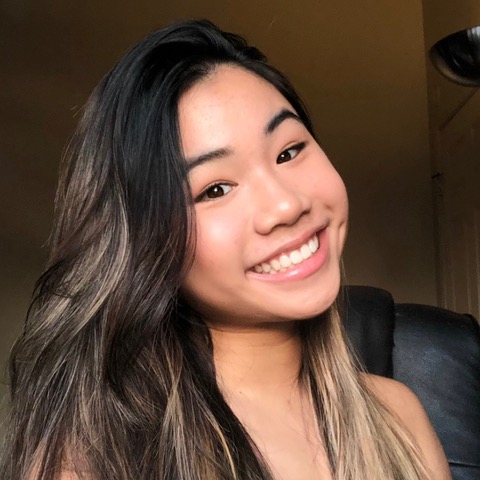
How do you hope to make a difference in environmental health? Through my work in environmental health, I aim to act as an advocate for Southeast Asians, women, and low-income individuals. Hopefully, by drawing attention to the environmental health disparities experienced by these marginalized groups and contributing to the body of research supporting activism for this cause, my work can educate and empower policymakers and physicians to create more effective decisions regarding environmental health justice and climate change as well as create better education and healthcare programs for at-risk communities.
What led you to pursue the EH MATTERS internship?
Spending a large part of my upbringing in various cities in Thailand, I learned about environmental health issues such as air pollution and lack of sanitation in city streets from a very young age. Coming home to Los Angeles, I see the same issues impacting the health of the entire population. Naturally, exploring the factors that contribute to environmental health issues and the way they disproportionally impact various groups of people has become a great topic of interest for me. I was drawn to EH MATTERS specifically because of how community-driven and applicable the research is. It draws attention to how critical environmental health is to everyone’s day-to-day life and will enable me to engage in research that contributes to making environmental health justice a reality.
How do you see this program helping to drive your future?
As an aspiring research physician, understanding the backgrounds of various patient populations and the constructs that play a role in their health and well-being is vastly important. I hope to use the research skills acquired through this internship to continue studying disparities in healthcare and work as an advocate for underrepresented populations.
How do you want to make a difference in public health/environmental health outside of the classroom?
I aspire to present health education in a way that is easily interpretable and useful to the public to help empower communities to make better decisions when it comes to their own health. In addition, I hope to open up discussions about the public policies that impact to people’s health, who makes these big decisions, and how to amplify the voices of the underrepresented.
What message would you like to share with other students wanting to pursue an internship in environmental health?
I highly encourage you to feed your curiosity and allow yourself to dive deep into online resources, reach out to experts in the field, and gain a full understanding of all the opportunities available to you to get involved and make change. EH MATTERS is an amazing program and I encourage you to apply, but you can definitely get involved in environmental health research and education even before applications open if you are ambitious and passionate enough!
What diverse perspective do you bring to EH science, why is it important to have diverse voices and experiences in EH?
My identity as a Southeast-Asian woman from a low-income background has contributed greatly to the way that I see the world around me. I spent my childhood in both Thailand and Los Angeles where I have lived drastically different lifestyles in terms of socioeconomic status and being a part of the minority and majority population. These experiences have fostered a great awareness of how race and income impact someone’s life, and have helped shape my values and passions. As a field that impacts everyone, diversity and representation is increasingly important in environmental health to make well informed, effective decisions.

How do you hope to make a difference in environmental health? I hope to make a difference in environmental health through participating in meaningful research on environmental stressors and their impacts on maternal health, especially for marginalized communities in Los Angeles. I plan to make a difference by bringing my current experience as a birth doula, past research experience, and past medical intern experience into my field research and medical infographics on environmental stressors and Maternal health disparities. Asides research, I’d like to advocate my findings to policy makers and public officials in order to foster real, effective change.
What led you to pursue the EH MATTERS internship?
My interests and passion for understanding and alleviating health disparities and the impacts of environmental racism have led me to pursue the EH MATTERS internship. Past and current coursework on epigenetics, environmental health, and structural violence have influenced my interest, in addition to my past research experience on Black maternal health. As a high school junior, I conducted a mixed-methods ethnographic case study on the maternal health disparities among upper-middle class Black women. My study concluded that perceived racism was a factor in treatment and outcomes for Black women. The participants were upper-middle class, educated, and had ample resources, yet had traumatizing, near-death experiences on behalf of their healthcare providers. These findings were disturbing, yet inspired me to replicate my research for other marginalized groups of women, especially Hispanic women in Los Angeles.
How do you see this program helping to drive your future?
Outside of my involvement with EH Matters, I am a premed student and a birth doula, aspiring to become an OB-GYN Oncologist. I see this program helping to drive my future through strengthening my background and understanding of how environmental stressors impact health, something that I believe is important for anyone who plans to pursue a career in medicine. I believe that medicine and healing should be focused on healing the whole person - this means having an understanding of the environmental and socioeconomic factors that can impact someone’s health. Asides knowledge and experience, this program will allow me the credibility and outlet to speak on environmental issues that impact marginalized communities.
How do you want to make a difference in public health/environmental health outside of the classroom?
Outside of the classroom, I want to make a difference in public and environmental health through research and advocacy. I’d like to give back to my communities of Black and Hispanic women, especially considering these communities are disproportionately impacted by environmental stressors on health, especially Maternal health.
What message would you like to share with other students wanting to pursue an internship in environmental health?
APPLY! As our current climate crisis worsens, the need for more people interested in helping the environment intensifies, especially since time is limited. Furthermore, if you’re passionate, you’re probably the right person for this position. As someone who was never necessarily the best at science in high school, yet is currently pursuing a Biology degree at USC and a career in medicine, I can say the only thing that has gotten me this far is passion. Passion is what will take me through the rest of college and beyond, all because I am passionate about health and healing, the environment, and justice. The world needs more proactive, passionate people, and this program provides amazing opportunities and networks for you to pursue change.
What diverse perspective do you bring to EH science, why is it important to have diverse voices and experiences in EH?
As a woman of many identities, I bring many diverse perspectives to EH science. Just as it did in my previous research, my background as a Black-Hispanic woman translated to my understanding of how and why Black women are treated the way that they are in modern medicine. This understanding due to my own personal experiences allowed me to develop a better thematic analysis for the qualitative component of my research and after my paper was done, allowed me to advocate and make a difference for my community, with ample credibility. It is important to have diverse voices and experiences in EH because environmental problems affect different groups in different ways. In research, a diverse research team allows participants to feel more understood and allows research itself to be more inclusive. Furthermore, environmental issues are diverse. As a result, the perspectives that are researching these issues should be diverse.
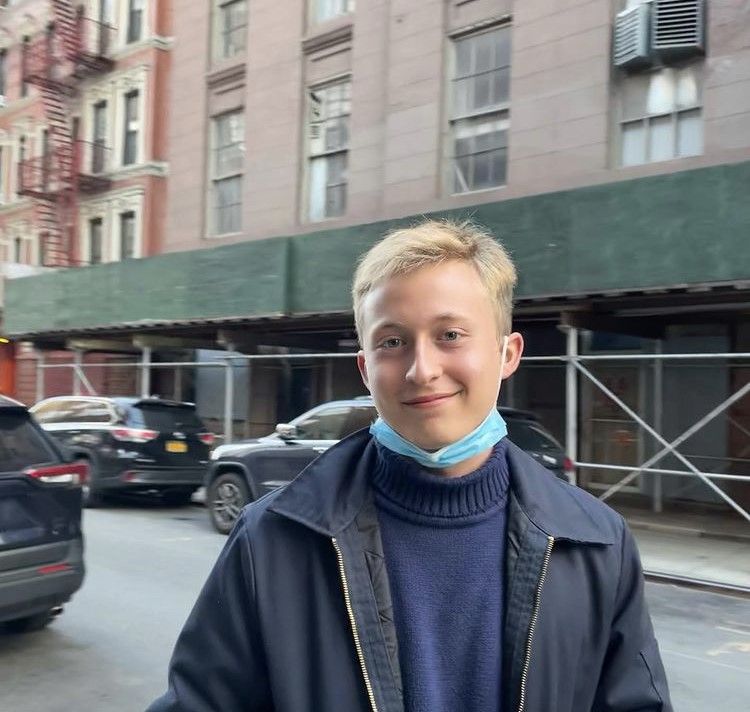
How do you hope to make a difference in environmental health? Environmental health remains a dynamic field, and I find that EH MATTERS will enable me to pursue research that can bolster advocacy efforts to further elucidate ethnic/racial disparities within maternity. Therein, my passion for advocacy in the Latine & Queer community comes out. Fueling my intellectual passion for medicine and research, working in environmental health allows me to pursue far more meaningful work that has the capacity to improve the lives of Latina women.
What led you to pursue the EH MATTERS internship?
EH MATTERS provides a platform for me to engage in medical research that appeals to more than my curiosities, but my identities too. The program’s design allows me to learn about environmental health, enabling me to pursue further research opportunities in this field. This program serves as the catalyst to become more involved in advocacy within environmental health—for the Latine and Queer community.
How do you see this program helping to drive your future?
Prior to completing my undergraduate education, I seek to enter an MD/PHD program that specifically incorporates artificial intelligence within medicine. This introduction into the real-world application of research (beyond academia) will be the foundation to expand on environmental health. Through extensive exposure to medical research, I aim to use this newfound information to intersect community health with artificial intelligence—and how we can utilize machine learning to improve patient experience in healthcare. However, I wish to create such a technology in aid of both Latine and Queer communities to implement stronger models that will streamline communication between patients and the respective medical resources they need.
How do you want to make a difference in public health/environmental health outside of the classroom?
Within the EM MATTERS program, I see that there is the opportunity to become more involved in not only research, but community. In recognizing and acknowledging the intersectionality between medicine and identity and environment, this program utilizes medical research in a precise and targeted way. This experience provides a crucial step forward in expanding a dialogue on marginalized communities within environmental health studies. What I learn in this program will enable me to pursue my ultimate goal, which is to elucidate deficiencies in Latine maternity care.
What message would you like to share with other students wanting to pursue an internship in environmental health?
Environmental health is the perfect backdrop between health and the environment: both in the literal and sociocultural sense. I would recommend that you first and foremost apply to the EH MATTERS Program, but alongside that find researchers that are doing crucial investigation on subjects that matter to you. Sending out emails is also a great way to pursue an internship (in environmental health), but ultimately make sure to let your curiosity lead you—so that when you do come across an opportunity, you’ll be driven to follow it through.
What diverse perspective do you bring to EH science, why is it important to have diverse voices and experiences in EH?
As a Queer Latino, I knew that I wanted to uplift my community through doing work that bolstered the Queer and Latinx community. Likewise, both my parents are immigrants who arrived without knowing English. I knew Spanish and Romanian before I knew how to speak English. It was in such a unique upbringing that I was able to learn the gift that is open and clear communication. It is in bringing this more conscientious self, that I believe I would augment the EM MATTERS cohort.
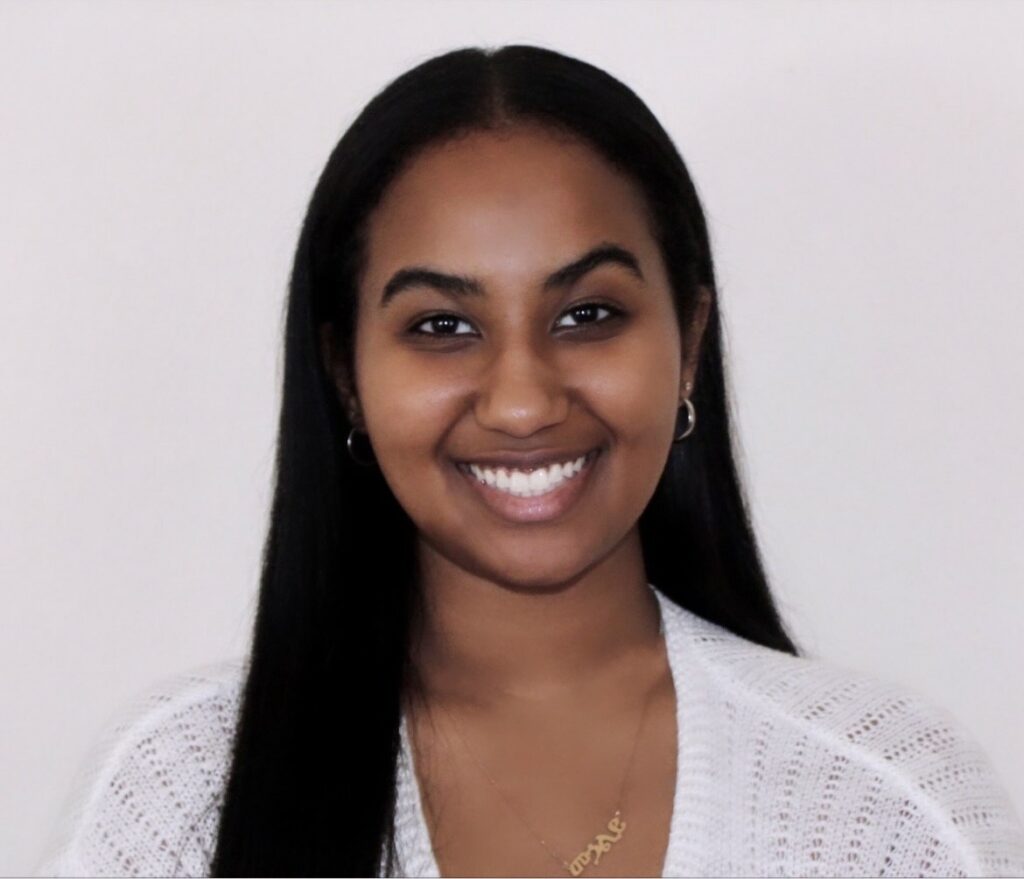
How do you hope to make a difference in environmental health? I’ve found that previously implemented interventions lack community awareness and involvement which are critical in creating sustainable efforts. I want to get involved by ensuring affected groups are included in the planning and implementation process to create culturally-tailored programs that can be disseminated and understood easily by the community. As a participant of EH MATTERS, I will be a part of leveraging positive change in the environment and not only build the community’s confidence through community-engaged research but build my own confidence and skills as well.
What led you to pursue the EH MATTERS internship?
As a society, we often focus on health at the individual level. Social determinants of health opened my eyes to seeing health beyond genetics and individual behavior. I started to notice that a person’s physical and mental well-being depends on their environment and socioeconomic status interplaying with genetics more than anything else. By getting involved in EH MATTERS, I hope to learn about health beyond personal behaviors and engage in environmental health research.
How do you see this program helping to drive your future?
As a previously pre-med student, discussions about health often blamed the individual. I realized that environmental exposures and socioeconomic status impacted health outcomes beyond individual capacities which propelled me to focus on a future in public health. I am hoping to engage in environmental health and solidify my interest in pursuing a Ph.D. by working with experts in the field through EH MATTERS. EH MATTERS intersects all of my interests in a way that will engage me in relevant health issues while also making a difference in the community. Not only will the program enhance my research skills, but it will also teach me how to advocate for justice in health through action-oriented research.
How do you want to make a difference in public health/environmental health outside of the classroom?
I’ve witnessed and experienced many health disparities and environmental injustices within my own communities. Through EH MATTERS, I can learn in-depth about such health issues and acquire the appropriate skills to create interventions to diminish the disparities through community-driven and action-oriented research. I want to dedicate my future to underrepresented communities like my own and better the environment around us as our lives quite literally depend on it.
What message would you like to share with other students wanting to pursue an internship in environmental health?
The environment affects everyone! While the consequences of climate change, unfortunately, impact some more than others (due to human activities), the environment is a global concern that could use your help. I never envisioned myself in environmental health, mainly since it seemed like a critical intangible enigma, but I soon realized that we can and should start right here with our local communities through programs like EH MATTERS.
What diverse perspective do you bring to EH science, why is it important to have diverse voices and experiences in EH?
Environmental injustice and discrimination in health care impact low-income people of color the most; low-income people of color also lack a voice in the care they receive and research being carried out. By consistently living in an urban environment, I've noticed that the neighborhoods I have lived in, which were primarily composed of low-income people of color, faced many health disparities and specifically environmental injustices. My lived experiences as a low-income Black woman will help me engage and apply environmental health research, especially in communities similar to my own.